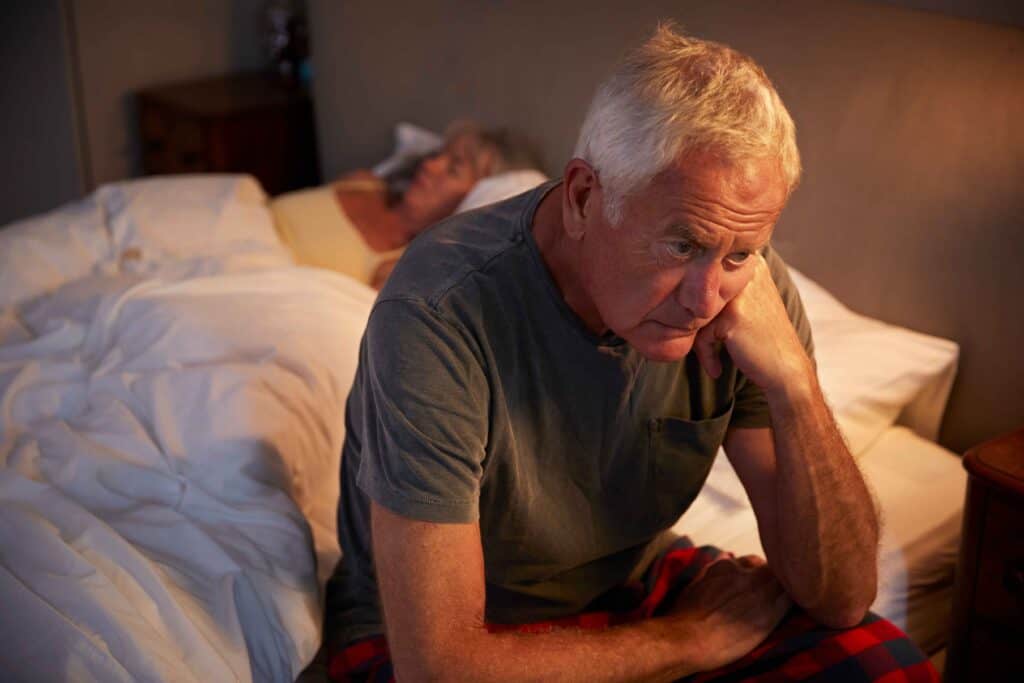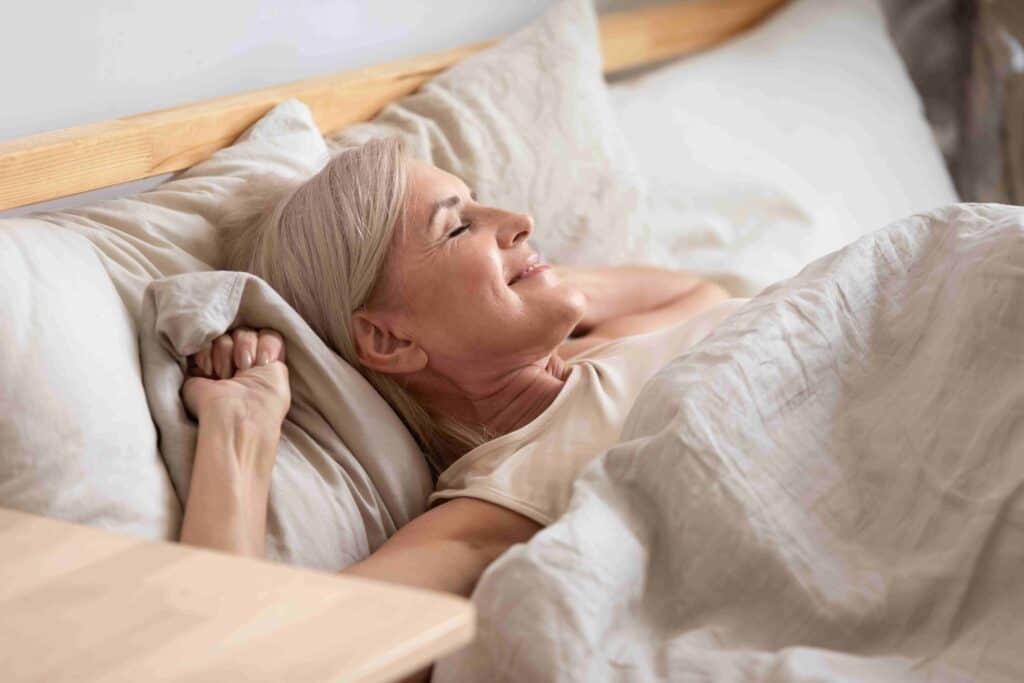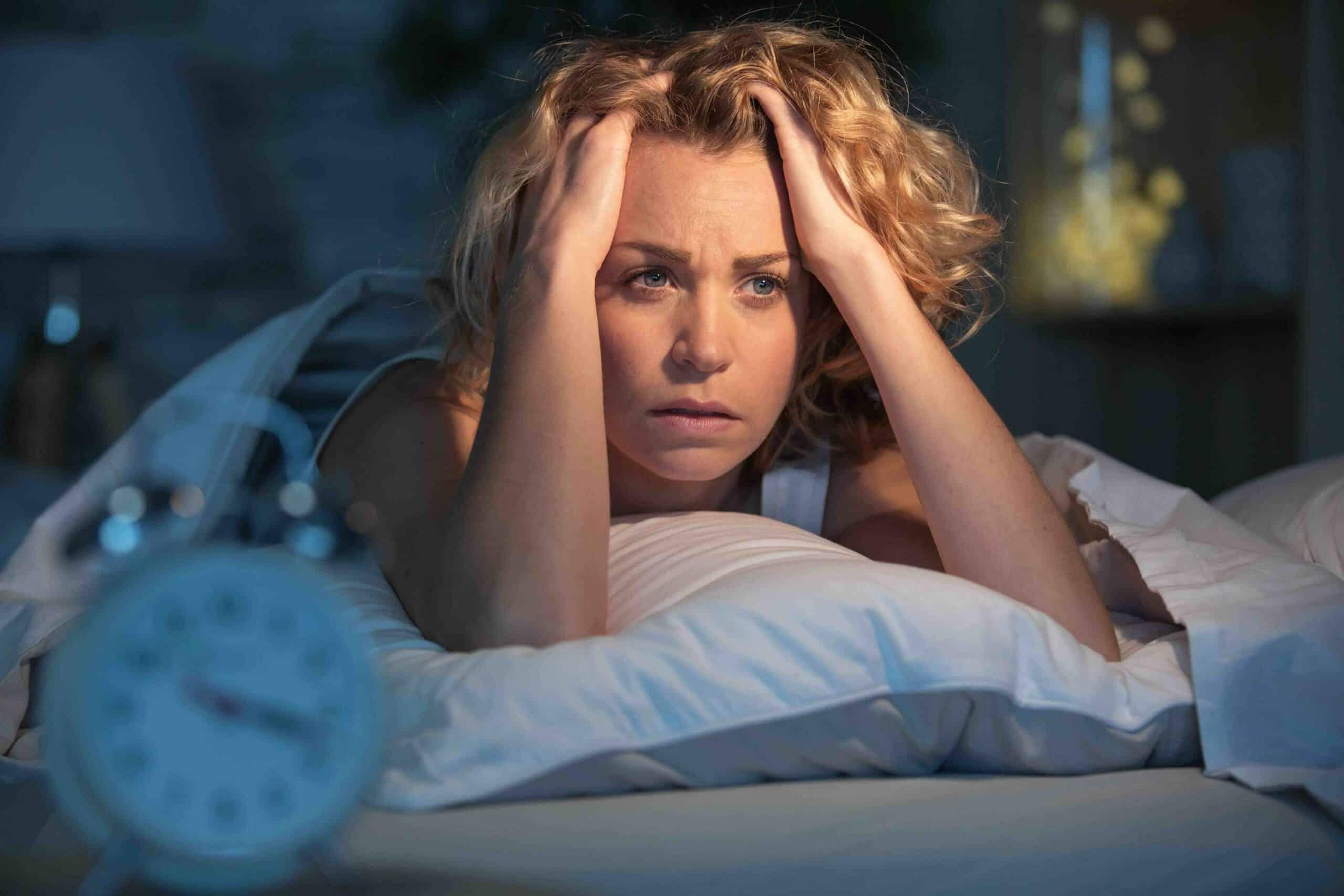The Effects of Sleep Deprivation at Different Stages of Life
We all know how difficult it is to function when you don’t get enough sleep.
Maybe a neighbor kept you up with loud music. Maybe it was a warm night. Or maybe you are having trouble falling asleep as you get older.
But sleep quantity is only half of the equation. Sleep quality is just as important. If you get eight hours of sleep but are waking up every hour on the hour, you’ll feel exhausted in the morning.
While one bad night can throw you off the next day, ongoing sleep deprivation can have far-reaching effects on your physical and mental health.
To get a full perspective of sleep deprivation’s impact, let’s look at how it affects people across age groups and during different life stages.
The Effects of Sleep Deprivation
Not getting enough sleep has uniform effects across all age groups. The Cleveland Clinic notes that a lack of sleep can lead to:
- Hypertension
- A heart attack
- Stroke
- Type 2 diabetes
- Obesity
- Anxiety
- Depression
- Alzheimer’s disease
- Impaired judgment
- Memory issues
A Weakened Immune System
Insomnia also decreases your immune function because depriving your body of sleep lowers its ability to create antibodies that fight off illnesses, like the common cold. If you are sleep-deprived, your body will take longer to recover and produce fewer illness-protecting proteins known as cytokines.
Though sleep loss has similar effects across all ages, there are differences based on age.
The Effects of Sleep Deprivation on Children
The American Academy of Sleep Medicine provides the following recommended sleep for children, including nap times:
- 4 to 12 months: 12 – 16 hours per day
- 1 to 2 years: 11 – 14 hours per day
- 3 to 5 years: 10 – 13 hours per day
- 6 to 12 years: 9 – 12 hours per day
- 13 to 18 years: 8 – 10 hours per day
If children do not meet their sleep needs, they can struggle in school as sleep loss contributes to attention, behavior, and learning problems.
Young children who are sleep-deprived are more likely to throw temper tantrums and have impulse control issues.
Long-term studies have found that decreased sleep has a significant impact on development. Sleep-deprived children were found to have decreased gray matter in their brains and persistent mood issues two years later.
Children typically need fewer hours as they get older. However, if they do not get enough sleep, they are at increased risk of mental illness. Research has shown that teens deprived of sleep are prone to self-harm, suicidal thoughts, and suicide attempts.
The Effects of Sleep Deprivation on Adults

The average adult needs seven to eight hours of sleep a night. If that sounds like a lot, for many adults it is. Over 20% of adults in the US and Canada have experienced insomnia.
In turn, many experience impaired judgment, concentration, and reaction times.
Like drunk driving, driving drowsy reduces your reflexes, decision-making, and, in extreme cases, can cause an accident behind the wheel! Staying awake for 20 straight hours decreases performance on tasks, like driving, equivalent to a DUI blood alcohol level of 0.08. Car accidents are a leading cause of death among young adults and fatigue can play a factor in deadly crashes.
Even if you don’t have a job that involves driving, exhaustion can increase your risk for workplace injuries because of its impact on your coordination.
Moreover, insomnia robs you of your full mental faculties, impairing decision-making. You could make mistakes on the job, in major purchases, and/or in your relationships.
When we don’t have the mental resources to think critically, others can take advantage of this. For example, interrogators use sleep deprivation to cut through mental resistance during questioning. Moreover, cults deliberately use physical exhaustion to break down mental barriers so that members are unable to think for themselves.
The Effects of Sleep Deprivation on Older Adults
Older adults need as much sleep as younger adults—seven to eight hours a night—but they are often less likely to get it. As we age, we often have trouble falling asleep, wake up more often during the night, and wake up earlier in the morning.
For older adults, the fact that insomnia decreases coordination can be particularly dangerous. It increases the risk of falling.
And while a lack of sleep can interfere with memory at any age, it is particularly disruptive for those who are already experiencing memory issues.
Looking beyond immediate effects, sleeplessness can accelerate aging on a cellular level by activating the genes associated with aging.
As we can see, it’s critical to address sleep issues due to its long-term health effects across age groups.
The Effects of Sleep Disorders
Beyond the external causes of sleep deprivation, several sleep disorders affect our well-being, including:
- Environmental sleep disorder
- Psychophysiological insomnia
- Obstructive sleep apnea
- Central sleep apnea
- Narcolepsy
- Idiopathic hypersomnia
- Shift work disorder
- Delayed sleep-wake phase disorder
- Periodic limb movement disorder
Ways to Address Sleep Deprivation

There are options to help us feel more alert and get a better’s night rest. Some are more effective than others. Let’s take a look.
Caffeine
Caffeine can help with alertness, but it doesn’t address the root cause of sleeplessness. Eighty percent of American adults use caffeine to deal with fatigue. However, caffeine can also backfire. If consumed too close to bedtime, it can make it harder to get restful sleep and perpetuate a cycle of insomnia.
Napping
While many people nap to catch up on sleep, napping cannot replace the deep REM sleep you can achieve during a full night’s sleep. Naps are more effective as a preventative measure to address the effects of a sleepless period.
Exercise
Physical activity is a great way to enhance your health and improve sleep. Something gentle as yoga, stretching, and breathing exercises help you fall asleep quickly to experience deep sleep and wake up refreshed. Any exercise until you are physically tired can make you fall asleep quickly, but also increase the amount of sleep you need to get really rested. Just be mindful that vigorous workouts before bedtime can be stimulating and make it harder to fall asleep.
Sleep Hygiene
There are also lifestyle fixes to help you sleep. Following good sleep hygiene can extend our sleep and improve its quality.
Sleep hygiene refers to the behaviors and habits of our sleep routine. You can improve them by planning when you will go to sleep, relaxing in the evening, and limiting screen time/blue light exposure before going to bed.
Sleep Supplements
Another effective way to address sleep loss is with sleep supplements. Melatonin is a hormone that your body produces and increases each evening to put you in a relaxed, quiet state. Many people take melatonin to fall asleep quickly and restore their sleep cycle.
Sleep Is Serious Business
A lack of sleep can be voluntary, involuntary, or due to external factors. Sometimes you just want to stay up until early in the morning. Hopefully reading this will encourage you to get as much sleep as possible.
Whatever you do, be sure to act. Sleep deprivation can have serious health consequences and affect your quality of life.




